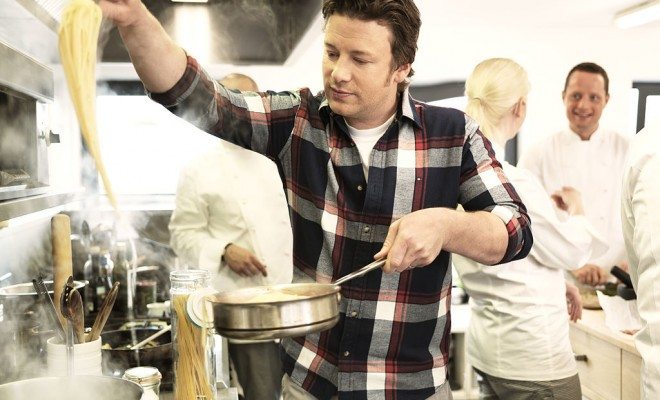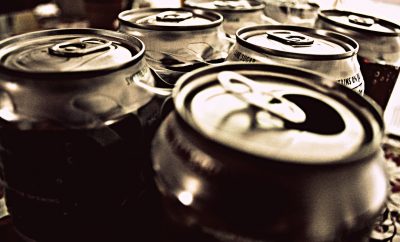 Image courtesy of [Scandic Hotels via Wikimedia Commons]
Image courtesy of [Scandic Hotels via Wikimedia Commons]
World
Jamie Oliver’s Crusade for a Sugar Tax: Will the U.S. Be Next?
Chef Jamie Oliver has been charming television audiences with his cooking and humor since his cooking show “The Naked Chef” debuted in 1999. His brand has expanded since 1999 to include a host of cookbooks, restaurants, advertising deals, and televised cooking programs, including “Jamie Oliver’s Food Tube” and “Drinks Tube” which introduces guest chefs and bartenders collaborating with Oliver. During his meteoric rise to fame, Oliver has become a champion for healthy eating and ending childhood obesity, both in the United Kingdom and beyond. Now, he’s advocating for a sugar tax as his latest move to help end obesity.
In 2010, Oliver launched the show “Jamie’s Food Revolution” as the first step in his Food Revolution Campaign. “Jamie’s Food Revolution” aimed to introduce healthy food into school districts where obesity ran rampant by reforming school lunch programs. Earlier this year, Oliver addressed the UK Parliament, calling for government intervention in children’s diets to prevent obesity. He presented his own Obesity Strategy, in which he outlines the policy changes that the UK must make to protect the health of the next generation. Oliver also launched a petition asking for the government to introduce a tax on soft drinks with added sugar in conjunction with the documentary “Jamie’s Sugar Rush,” which publicizes sugar’s links to obesity and type 2 diabetes. When the government failed to introduce the tax on soft drinks, he introduced his own version of the tax in the restaurants he operates. In an interview with The Sunday Times, Oliver stated that
I’ve seen first-hand the heartbreaking effects that poor diet and too much sugar is having on our children’s health and futures. Young children are needing multiple teeth pulled out under general anesthetic and one in three kids [is] now leaving primary school overweight or obese. Soft drinks are the biggest single source of sugar among school-age kids and teenagers and so we have to start here.
Prime Minister Cameron has dismissed the sugar tax in the past, but last week, The Commons’ Health Committee (a panel of representatives that Oliver testified to earlier this year) called for the introduction of a sugar tax in the UK. This call for action, combined with Public Health England’s October 2015 report, has revived the feasibility of passing a sugar tax in the near future. The sugar tax would be part of a larger program to combat obesity in the UK, which would aim to limit soft drink advertising and the sale of large quantities of soft drinks. This crackdown on soft drinks may be successful, as it was in Mexico where a 10 percent tax on sodas led to a 6 percent reduction in consumption, but it is important to remember the massive backlash against Mayor Bloomberg’s 2010 proposal to limit soda consumption in New York. It has been argued that reducing obesity will come from cultural shifts rather than taxes that negatively impact the poorest sectors of society. Oliver has defended the tax by citing its success in other countries and has continued to promote the tax despite criticism about the efficiency of the tax and about Oliver’s own motivations.
The British case may have significant impacts on sugar consumption debates in the United States. If the UK can introduce a sugar tax that successfully reduces consumption and improves national health, Mayor Bloomberg’s dream may be revisited as a national reality. At this moment, we don’t have a celebrity champion for the cause, but if Oliver is successful in the UK, he may expand his petition for a sugar tax globally. The American public should keep an eye on the sugar tax battle in the UK, because the momentum that Oliver has stirred up may soon cross the Atlantic.








Comments